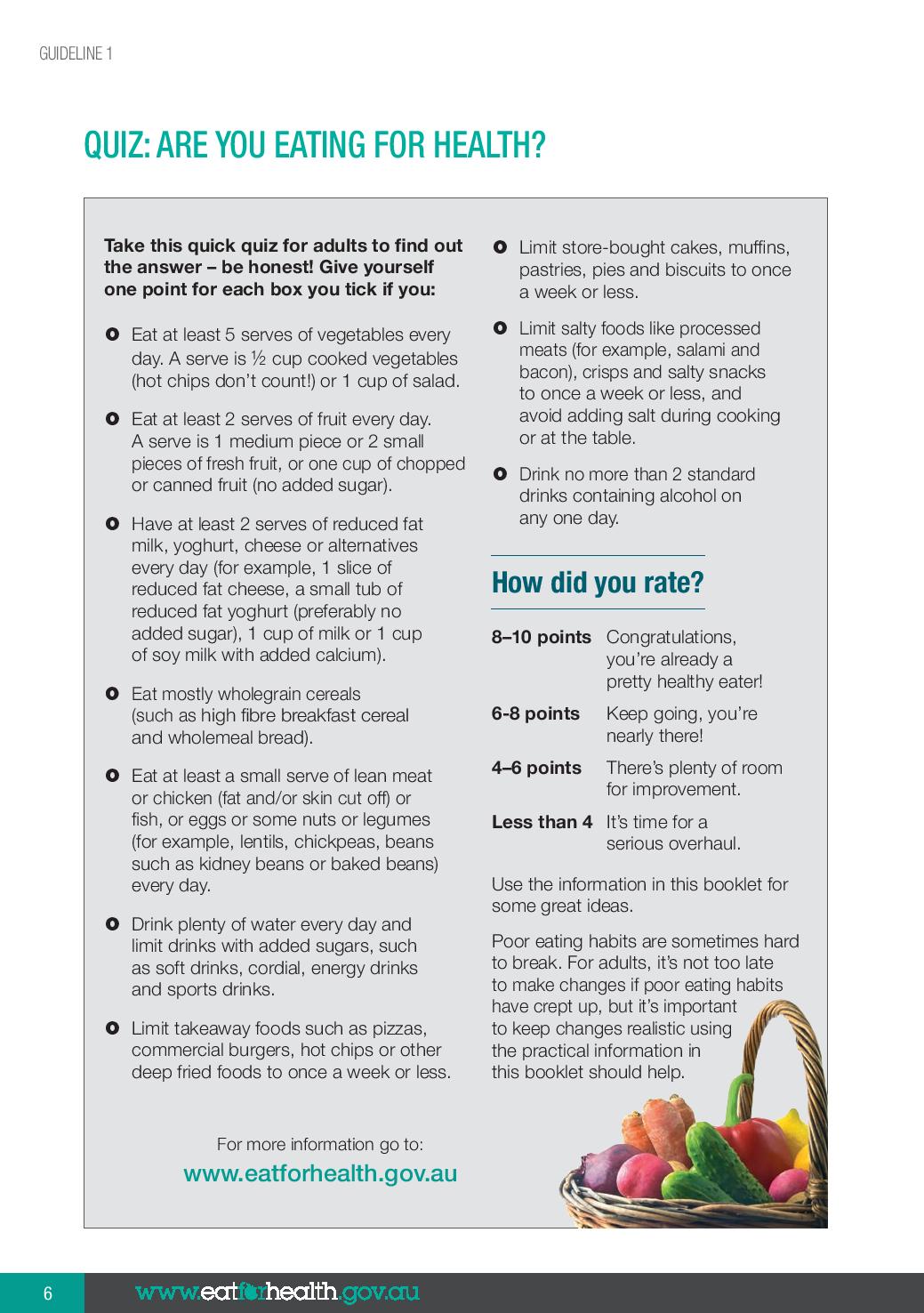
The Foundations of a Healthy Diet
By Rachael Tibbits
As many of us know, a healthy diet is essential to our health and wellbeing. Emerging research in the area of nutrition gives us new insights into eating well; however, there are foundational healthy eating principles that are important for us to be reminded of. Having healthy dietary patterns ensures that we get enough nutrients for good health and can help reduce our risk of chronic health diseases including heart disease, type 2 diabetes, obesity and some cancers. Recent research shows that a healthy diet may also benefit mental health.
The Five Food Groups
Having a diet a high in plant-based foods (whole grains, fruits and vegetables), consuming moderate amounts of lean meats and alternatives, and reduced fat dairy; as well as limiting foods high in added sugar, salt, saturated fat and alcohol, is foundational for good health. Having a variety of foods from the five food groups - vegetables, fruit, grains (cereals), dairy, lean meats and alternatives - is a key for optimal health. If you are wondering what foods are in the five food groups and how much of each food group you should be consuming, please check out the Eat For Health website, which outlines dietary recommendations for children and adults.
Having balance and variety in our diets is central to healthy eating. Consuming a variety of foods from each of the five food groups ensures that we get enough nutrients for good health. Each of the five food groups vary in the amount of nutrients and beneficial components they provide. For example, grain foods - such as wholegrain and high fibre breads, cereals and grains - are an excellent source of dietary fibre, iodine and B vitamins. Dietary fibre is important for good gut health and may help in reducing blood cholesterol and maintaining healthy blood sugar levels. This is important to consider in light of a number of diets encouraging the restriction of grain foods or other food groups. In eliminating a food group, you may be missing out on the unique health benefits that each of the food groups have to offer.
Fruit and Vegetables
A key message that many of us have heard before, but need to be reminded of, is to eat more fruit and vegetables, and to eat a variety of types and colours of fruit and vegetables. In 2017-18, less than 1 in 10 Australians met the dietary guidelines for daily vegetable intake and just over half met the dietary guidelines for daily fruit intake (with the average adult target being five serves of vegetables and two serves of fruit per day). Fruit and vegetables provide us with dietary fibre and a number of vitamins and minerals; such as vitamin C, vitamin A, folate and potassium, which have many health benefits including strengthening immunity, skin health, and healthy nerve and muscle function. Also, vegetables are low in energy (calorie) density, which means that they are important for maintaining a healthy weight. Vegetables are a great way to add bulk to meals and fill us up, without providing excessive calories.
Cutting down on Discretionary Foods
Now that we have established the need to boost the fruit, vegetable and wholegrain intake in our diets, let’s take a look at what we need to cut down on. Australians are consuming an excessive amount of ‘discretionary foods’, which are foods that are not an essential part of a healthy diet and are often high in calories, saturated fat, added sugar and salt. Examples of discretionary foods include cakes, desserts, pastries, chips, cream, sugar-sweetened beverages and alcoholic drinks. These foods can be included a healthy diet; however, often the portion size of these foods and frequency that we eat these foods is excessive. Reducing portions of discretionary foods can make a significant impact on your calorie, saturated fat, sugar and salt intake.
In summary, many of us have heard the above foundational healthy eating principles; however, it is important to be reminded of the key components of a healthy diet. Making small, consistent improvements in our diet can make a big impact on our health and wellbeing.
There are many resources and supports available to help you eat well, such as the websites below:
If you'd like to get an idea of whether you are 'eating for your health' take the quiz in the image below.


Written by Rachael Tibbits, Dietitian at Mount Hospital
Good food not only assists in the recovery process, it also lifts people's spirits and helps their mental and emotional wellbeing. Healthscope continues to launch our new menu which has been carefully created to offer meals that are nutrient-dense, satisfying and flavoursome.
